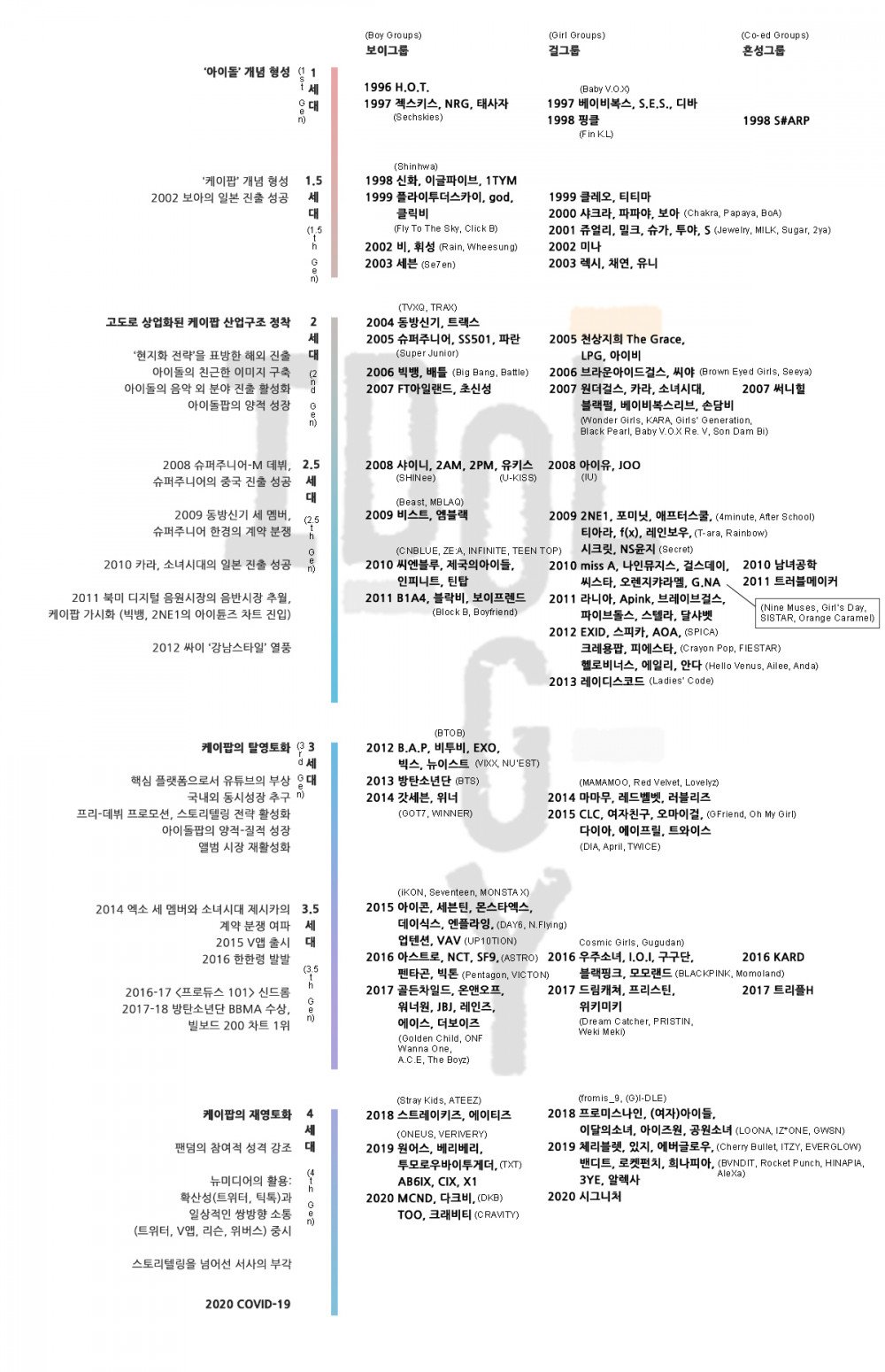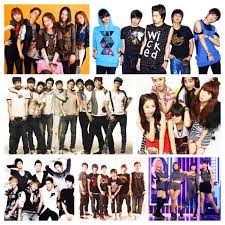I define generations by the groups debut date. I feel like first gen is the longest because it was were the concept of the kpop was established. I also put the .5 gens because I felt that their was a shift in the energy/vibe of the new groups debuting. But that shift was not significant enough for me to count them as a new gen.
Once an new generation starts it doesn't automatically mean that the older generations are now irrelevant. It just means that there is a large shift in trends and music of the newly debuted groups. The most recent example of this the shift from 3rd to 4th gen. 3rd gen is still largely dominating the industry and some groups have not even reached their peaks yet, but the shift in the groups debuting is still largely noticed. Most 4th gen groups can be described as dance/choreo heavy, experimental and having high social media presence.
Gen 1.0 (1992-1995)-Seo Taiji and Boys, Turbo....
Gen 1.5 (1996-2002)- HOT, SES, god, Fin.KL....
Gen 2.0 (2003-2007)- TVXQ, Big Bang, Brown Eyed Girls, SNSD...
Gen 2.5 (2008-2011)-2NE1, Infinite, 4Minute...
Gen 3.0 (2012-2014)-Exo, BTS, Mamamoo....
Gen 3.5 (2015-2017)-Twice, Seventeen, Blackpink, NCT...
Gen 4.0 (2018-present)-(G)i-dle, TXT, Aespa.....
The start and end dates are not definite and there are exceptions. For example groups who debuted at the end and the beginning of generations are still widely debated on which generation they belong to. I'm curious to see how other people sort generations especially with some people not believing that 4th gen has even started and multigenerational groups like NCT.
 i
i 

